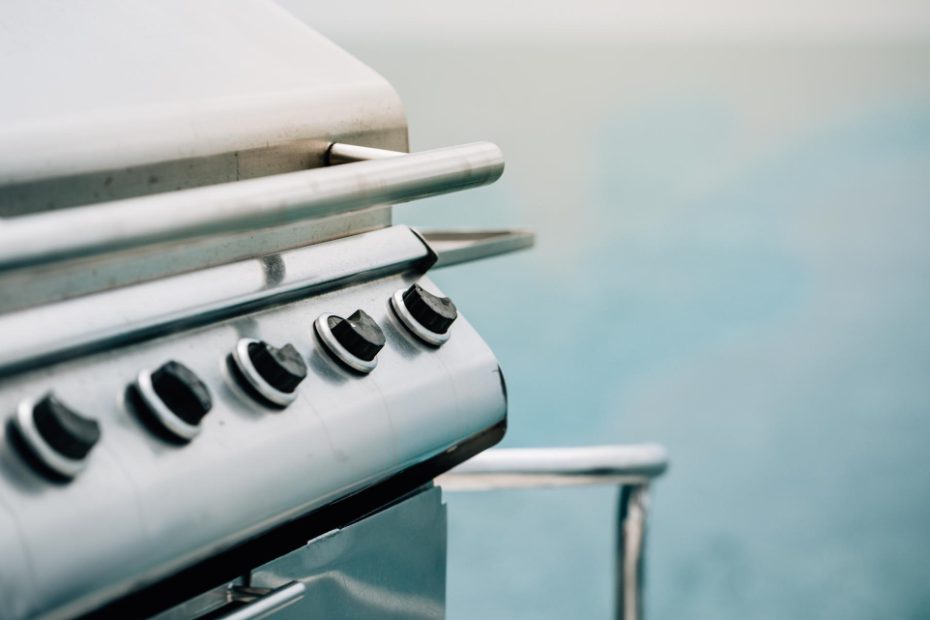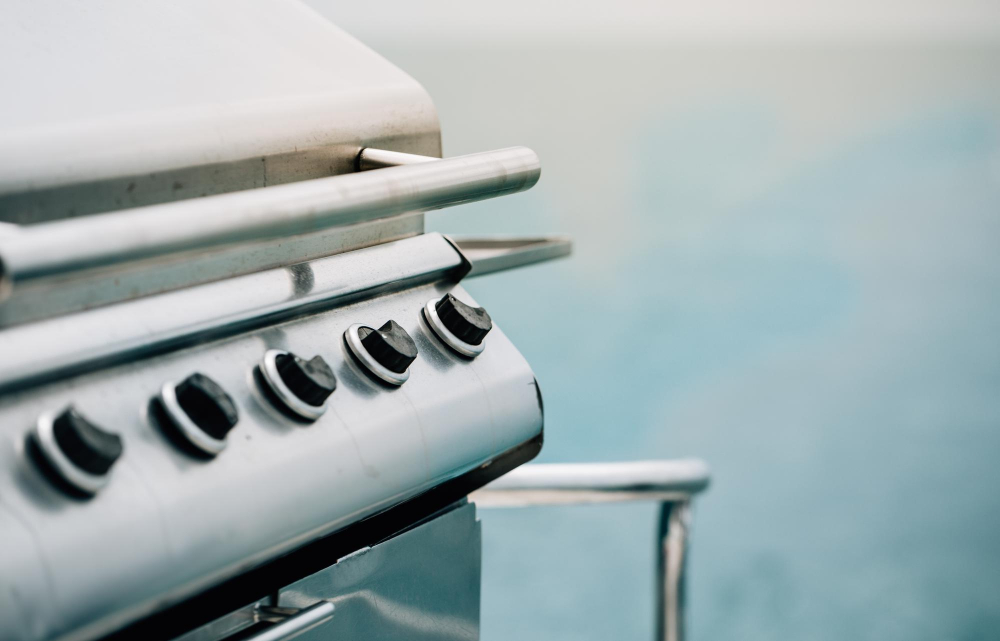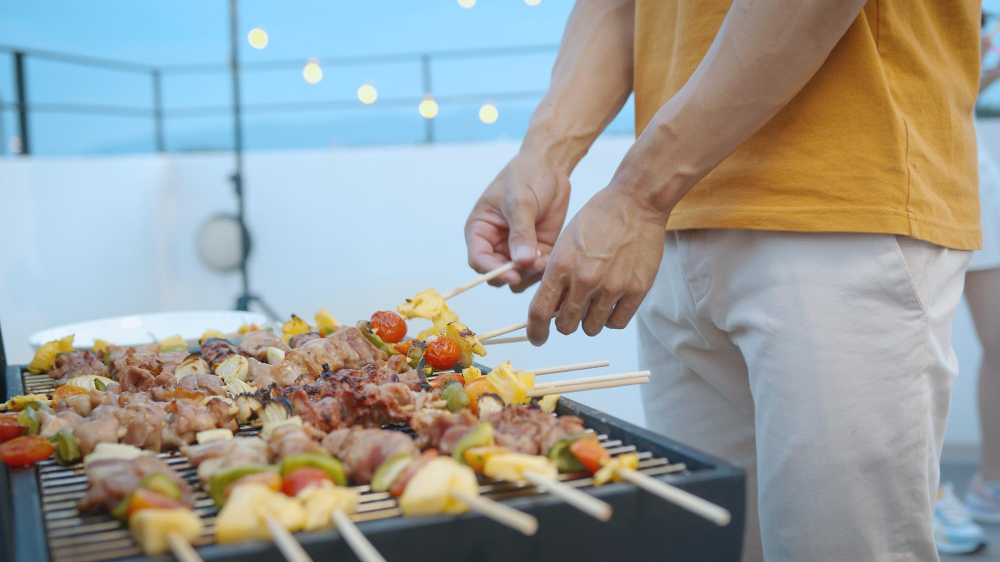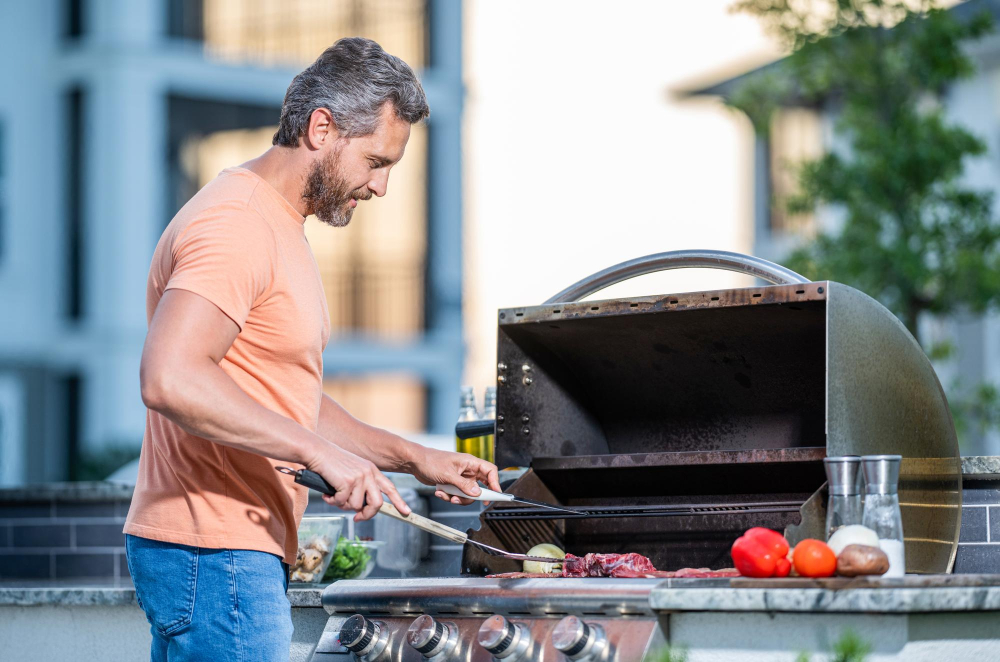Is it more efficient to leave a BBQ on?
Introduction
When it comes to barbecuing, there is often debate about whether it is more efficient to leave a BBQ on or turn it off when not in use. Some argue that leaving the BBQ on maintains a consistent temperature and reduces the time needed for preheating, while others believe that turning it off between uses saves energy and reduces the risk of accidents. In this article, we will explore both perspectives and provide insights into the most efficient practices for BBQ usage.
The Case for Leaving the BBQ On
Consistency is a key factor when deciding whether to leave a BBQ on or turn it off. By leaving the BBQ on, you can maintain a constant temperature, which is particularly beneficial for slow-cooking meats or maintaining the ideal heat for certain recipes. This also eliminates the need for extensive preheating each time you start a cooking session, saving time and energy.
Convenience is another advantage of keeping the BBQ on. If you frequently use your BBQ throughout the day or have multiple guests to cater to, leaving it on ensures that it’s always ready for use. You can simply add more food to the grill without the hassle of waiting for it to heat up again.
Reduced wear and tear on the BBQ is a consideration as well. Constant on-and-off cycling can put strain on the ignition system and other components, potentially leading to more frequent repairs or replacements. By leaving the BBQ on, you can extend its lifespan and reduce maintenance costs.
However, it’s essential to consider the potential downsides and alternative perspectives.
The Case for Turning the BBQ Off
Energy conservation is a significant argument in favor of turning off the BBQ when not in use. Continuously running a gas or electric BBQ consumes energy, contributing to your utility bills and environmental impact. By turning it off when not needed, you can save energy and reduce your carbon footprint.
Fire safety is another crucial consideration. Accidents can happen, and leaving a BBQ unattended for extended periods increases the risk of fire hazards, particularly in windy conditions or with flammable materials nearby. By turning off the BBQ after use, you minimize the chance of accidents and promote a safer outdoor cooking environment.
Cost-saving is an additional factor. Running a BBQ continuously, especially throughout the day, can lead to higher gas or electricity costs. Turning it off between uses helps to conserve resources and ultimately reduces your expenses.
In conclusion, the efficiency of leaving a BBQ on depends on individual preferences, usage patterns, and safety concerns. If convenience and consistency are your priorities, keeping the BBQ on may be suitable. On the other hand, if energy conservation and safety are more important to you, turning it off when not in use is recommended. Ultimately, finding a balance between efficiency, convenience, and responsible usage is key to getting the most out of your BBQ experience.
“Whether to leave a BBQ on or turn it off is a personal choice, but considering energy conservation and safety aspects is crucial.” – BBQ expert
How much propane does a BBQ use?
When it comes to hosting a summer barbecue in the UK, one of the key considerations is how much propane is needed to fuel the event. The amount of propane used by a BBQ depends on various factors including the size of the grill, cooking time, and the number of guests. Here’s a breakdown of estimated propane usage for different types of barbecues:
Gas Grills
Gas grills are a popular choice for outdoor cooking, offering convenience and ease of use. On average, a gas BBQ will consume between 1 to 2 pounds of propane per hour of grilling. For example, a 20-pound propane tank would last around 10-20 hours of cooking time, depending on the heat settings and cooking techniques used.
Charcoal Grills
In comparison, charcoal grills do not require propane as they use charcoal briquettes or lump charcoal for cooking. However, it’s worth noting that additional propane may be needed if you use a propane chimney starter to light up the coals faster.
Calculating Propane Usage
To estimate the amount of propane needed for a specific BBQ session, you can follow these steps:
- Check the grill’s BTU rating. This indicates the grill’s heat output and can help estimate propane consumption.
- Divide the BTU rating by 91,547 (the number of BTUs in a gallon of propane) to find out the gallons of propane consumed per hour.
- Divide the gallons per hour by the number of gallons in your propane tank to calculate how long the propane will last.
Tips for Efficient Propane Usage
To make the most out of your propane and ensure efficient usage:
- Clean your grill regularly to remove grease buildup, as it can affect heat distribution.
- Preheat the grill for at least 10-15 minutes before cooking to achieve the desired temperature faster.
- Consider using a grill cover to maintain heat and prevent unnecessary propane consumption.
“By estimating the propane usage and following a few tips, you can enjoy a great BBQ without worrying about running out of fuel.”
Remember, these are general estimates and actual propane usage may vary depending on specific circumstances. It’s always recommended to have extra propane on hand, especially for larger gatherings or longer cooking sessions, to avoid any inconvenience during your summer barbecues in the UK.
How Can I Reduce Gas Consumption on My Grill?
Grilling is a popular cooking method in the UK, especially during the summer months. However, using a gas grill can lead to high gas consumption and increased costs. So, how can you reduce gas consumption on your grill without compromising the taste and quality of your food? Here are some tips to help you:
1. Preheat Efficiently
To save gas, preheat your grill for only 10-15 minutes instead of the usual 20 minutes. This will still ensure that your grill reaches the desired temperature while reducing unnecessary gas usage.
2. Optimize Cooking Time
Avoid constantly opening the grill lid as it releases heat and extends cooking time. Instead, use a grill thermometer to monitor the internal temperature of your food, ensuring it cooks perfectly without the need for excessive gas usage.
3. Keep Your Grill Clean
A clean grill performs more efficiently, allowing for better heat distribution and shorter cooking times. Regularly clean the grates and remove any grease buildup to optimize gas usage.
4. Use Properly Sized Cookware
Avoid using oversized cookware on your grill as it can lead to heat loss and increased gas consumption. Use smaller pots and pans that fit comfortably on the grates to maximize heat transfer and minimize wasted gas.
5. Utilize Heat Zones
If your grill has multiple burners, utilize heat zones to cook different foods at varying temperatures. This allows you to conserve gas by only using the burners necessary for cooking each item.
Incorporating these gas-saving tips into your grilling routine will not only help you reduce gas consumption but also save money on fuel costs.
Remember, grilling is all about the experience and enjoying delicious food, so don’t be afraid to experiment with flavors and techniques. By following these tips, you can become a more efficient griller while still producing mouthwatering meals.
Is it wasteful to leave a BBQ grill on high?
When it comes to using a BBQ grill, many people wonder if leaving it on high heat is wasteful. Let’s explore whether this is true or just a myth.
Understanding the Energy Consumption
To determine if leaving a BBQ grill on high is wasteful, it’s essential to understand how much energy it consumes. Different types of grills have varying energy requirements. For example, gas-powered grills consume fuel, while charcoal grills require briquettes or lump charcoal.
In terms of gas grills, leaving it on high will use a significant amount of fuel, leading to wastage. It’s more efficient to preheat the grill and then adjust the temperature to the desired level. This way, you can conserve energy and still enjoy deliciously cooked food.
Reducing Wastage and Saving Energy
To minimize energy waste while using a BBQ grill, there are a few techniques you can employ:
- Preheating: Preheat your grill to the desired temperature and then adjust it accordingly. This helps conserve energy by not keeping the grill running unnecessarily.
- Cover with a lid: Using a lid while grilling helps retain heat, allowing for more efficient cooking and reducing the need for excessive heat.
- Cooking in batches: Instead of leaving the grill on high for extended periods, consider cooking in batches. This ensures that each batch is cooked thoroughly without wasting energy.
Leaving a BBQ grill on high for an extended period can be both wasteful and costly, so employing these techniques can help reduce energy consumption and save you money.
Eco-Friendly BBQ Alternatives
If you’re conscious about your carbon footprint, there are eco-friendly BBQ alternatives worth considering:
- Electric grills: These grills operate using electricity and minimize energy waste. They are a suitable option for those who want to reduce their environmental impact.
- Solar-powered grills: Powered by sunlight, solar grills harness renewable energy, making them an eco-friendly choice.
By opting for these alternatives, you can enjoy delicious barbecue while being environmentally responsible.
In Conclusion
While it may be tempting to leave a BBQ grill on high for convenience, it is indeed wasteful in terms of energy consumption. By understanding the energy requirements of your grill, employing energy-saving techniques, and considering eco-friendly alternatives, you can enjoy your barbecued meals while minimizing waste and reducing your environmental impact.



